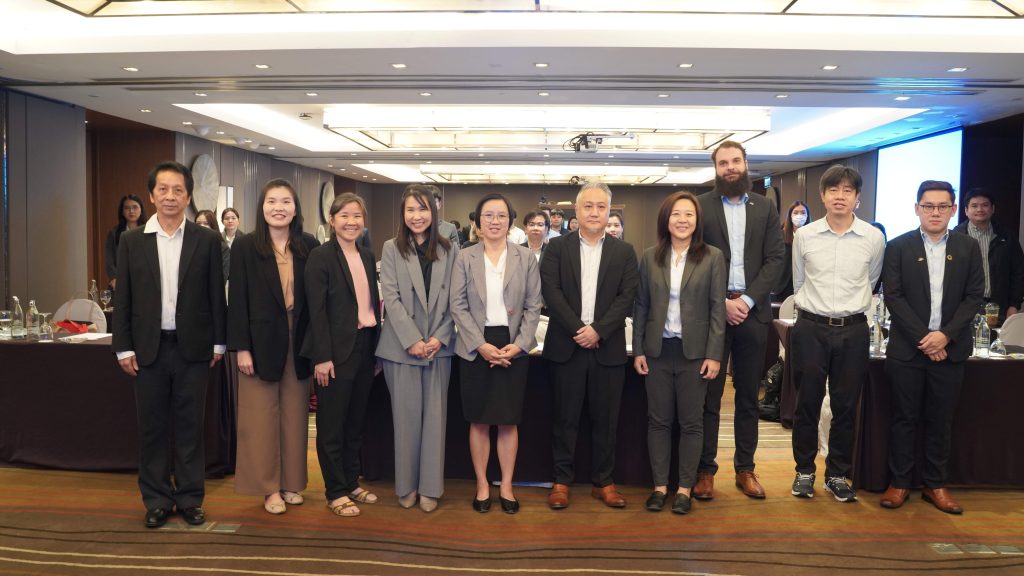Talk Show on Sustainable Energy Finance
Jakarta, Indonesia — CASE Indonesia, in collaboration with Tempo media, held an online talk show on 13 December 2022, discussing sustainable business and financial practices that have been implemented in support of Net Zero Emissions efforts. The show featured six panelists from several of Indonesia’s most reputable companies. At least 2,000 viewers were watching online, with various backgrounds in energy and non-related sectors.
The President Director of PT Sarana Multi Infrastruktur, Edwin Syahruzad, said the company’s climate statement supports the government in achieving the NZE target, by implementing a moratorium on power plants emitting high levels of greenhouse gases. In addition, PT SMI is currently responsible for being a national platform for the Energy Transition Mechanisms, and for issuing Energy Transition financial products with foreign partners.
As the largest agricultural equipment manufacturer in Indonesia, PT AGRINDO Prakarsa Group stated that the company made efforts in support of NZE through a heating process in the production stage, using biomass and a drying process, which has already adopted environmentally friendly principles. The topic was addressed by Commissioner Arief Budiman. The company has also committed to supporting NZE in Indonesia. Arief invited non-energy business players to support NZE, by socializing and educating the principles, especially concerning financial assistance, such as grants, blended finance, and de-risking mechanisms.
Antony Harsono, Director of Energy & EPC Samator Group, the largest and leading industrial gas producing company in Indonesia, expressed his company’s desire to switch to green hydrogen. During the energy transition period, the company is in the process of switching from Liquefied Natural Gas (LNG) to green hydrogen. Energy from green hydrogen is similar to LNG, in that it is easy to transport and distribute between islands in Indonesia. In addition, PT Samator has reduced CO₂ emissions by turning them into dry ice, as well as increasing the capacity of their solar panels to generate electricity and using production machinery with higher energy efficiency ratings.
CEO of PT Semesta Energi Services & CGEI, Herman Huang, said that Indonesia must be able to assess the available local wisdom for alternative energy resources, such as water, biomass, biogas, low-speed wind, and geothermal. Providing incentives is strongly suggested to support companies that want to develop clean energy. Herman welcomed the Just Energy Transition Partnership (JETP) platform.
The Finance Director for PT Pertamina Geothermal Energy, Nelwin Aldriansyah, said the biggest challenge in operating a geothermal power plant is the extended exploration, exploitation and production cycle (5-7 years). This cycle requires long-term investment. Exploration risks can be mitigated by government drilling or grant products that assure new geothermal potential and encourage interested developers. Nelwin agrees with using green hydrogen energy. He also mentioned that geothermal power plants receive a significant financial assistance, such as equity participation, local and international bank cooperation, and long-term green bond issuance. There are many types of geothermal project financing that can be explored.
The Senior Vice President of Finance and Portfolio Management for PT Industri Baterai Indonesia, Yunan Fajar Ariyanto, noted that the two sectors producing the greatest amount of greenhouse gases are electricity generation and transportation. With the shift to green energy, these two sectors need batteries to store power, specifically for power generation (wind, solar) and electric vehicles (EVs). It is vital for Indonesia to develop battery recycling facilities, in addition to growing the domestic battery and EV production ecosystems.
Watch the discussion (in Indonesian) below:




